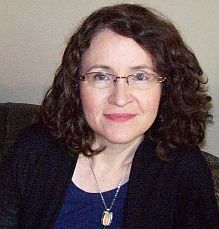Scripture says, “Ask and you shall receive, seek and you shall find, knock and it shall be opened to you” (Matt 7:7).
One of my New Year’s resolutions: pray more.

I know that God can do all things and that He loves me with a perfect love. He desires what is best for me and wants me to trust Him and turn to Him in all things. I know this. Yet I often struggle with prayer.
God has answered my prayers in amazing ways, and I’ve seen Him answer the prayers of others. But many prayers are left unanswered or the answer is “no.” This or that person that I pray for goes on suffering under illness or hardship. I do not receive what I ask for or find what I am seeking. The door remains closed.
In this post, I’m going to consider why.
I love the Catechism of the Catholic Church because it covers just about every subject related to faith and morals. So I’ve turned to the sections on prayer and made some notes.
“Prayer is both a gift of grace and a determined response on our part” (CCC 2725).
- Prayer is a mystery that goes beyond science and reason.
- Being constant in prayer takes effort–don’t I know it!–prayer is a battle!
- The devil doesn’t want me to do it because he knows it will draw me closer to God.
- Prayer is not reaching a mental void. It is seeking God.
- It cannot be reduced to ritual words or postures.
- I can never use the excuse “I don’t have time” because I can pray anywhere, anytime, no matter what I’m doing!
- Prayer is never “a waste of time” because the mission of life is to know, love, and serve God.
- Prayer does not come from me alone, but from the Holy Spirit.
- Prayer is being caught up in the beauty and glory of the living and true God.
- Prayer does not take me from the world, like an escape from reality. It prepares me for the world.
- Periods of dryness in prayer do not mean failure, and I shouldn’t get discouraged.
- Prayer is more difficult if I have not given all to the Lord.
- Having a regular prayer life doesn’t mean I’m going to get what I want!
Okay, this brings me back to my first thought. The Catechism has much more on the subject, but I need time to absorb what I’ve read so far. I return to the question: why don’t I get what I ask for? Perhaps I have not been asking with faith and humility.
Maybe. But I also believe that God allows for disappointments, setbacks, failure, illnesses, and loss because He is purifying us and calling us closer to Himself. He is giving us something greater than what we ask for.
“Son though he was, he learned obedience through his sufferings” (Hebrews 5:8).

If Jesus learned from it, we can learn from it. Perhaps He is even preparing us through our experience to be there for someone else in the future.
When I think about the struggles and suffering I’ve faced in the past, I realize that they are a big part of who I am today. Maybe the trials of the future will not be as daunting to me because of what I’ve experienced in the past. Perhaps the difficulties I’ve lived through have prepared me to be the person I need to be for my family and friends today.
Does God answer your prayers? Do you know anyone whom God has physically healed as a result of prayer? Why do you think God does not heal everyone who asks? In Roland West, Loner the power of prayer comes to light, and characters consider why God does not always give us what we ask for. I would love for you to share your experience in the comments section.
Theresa Linden is the author of the Chasing Liberty trilogy and Roland West, Loner.













